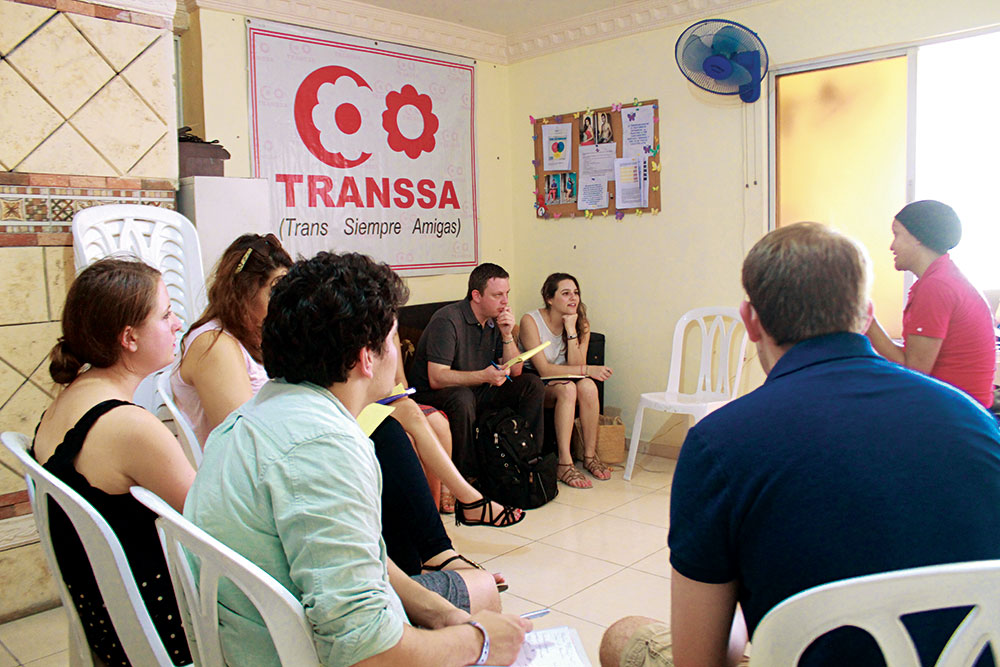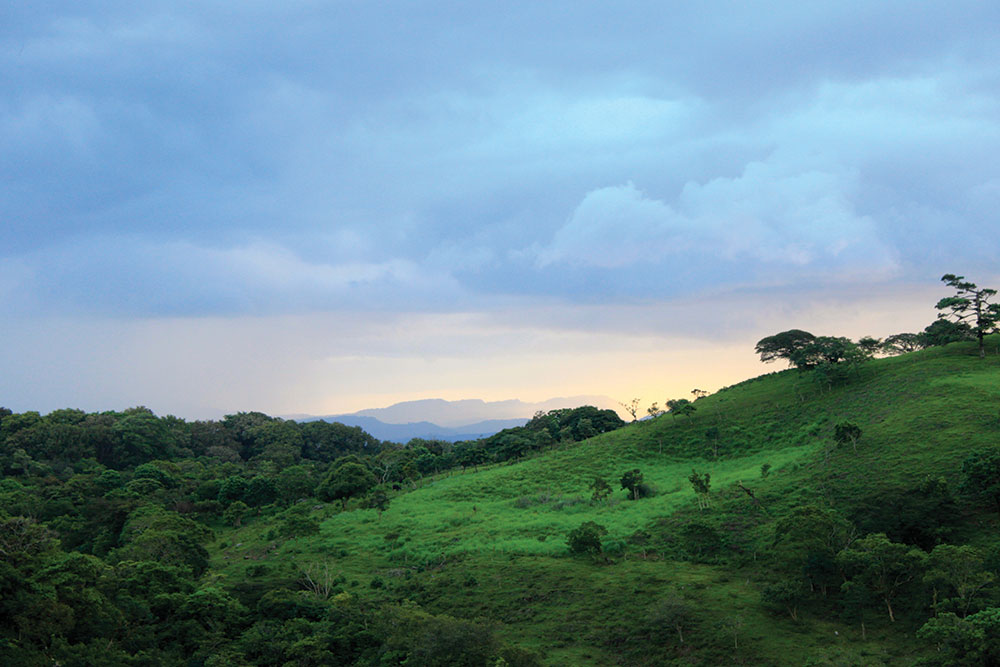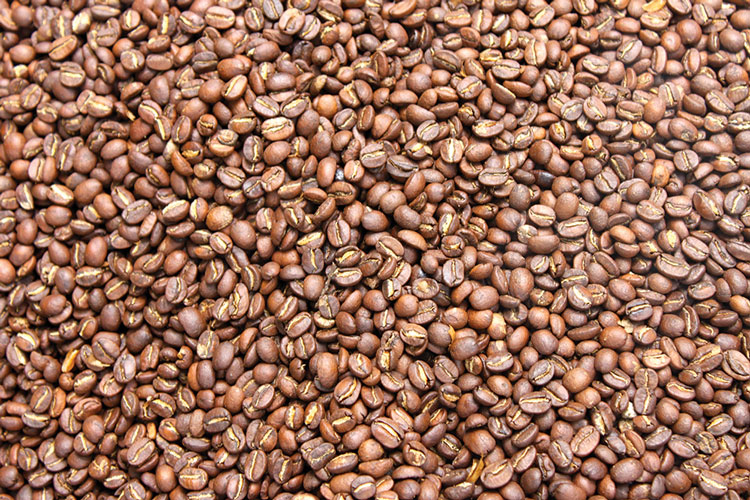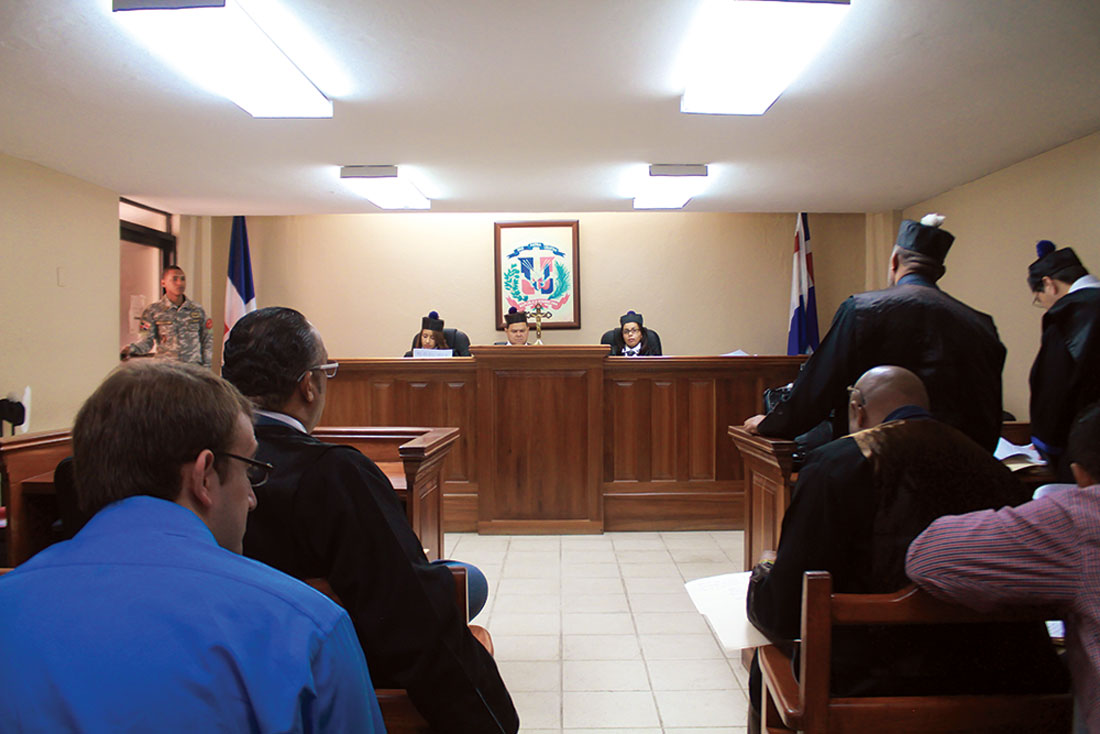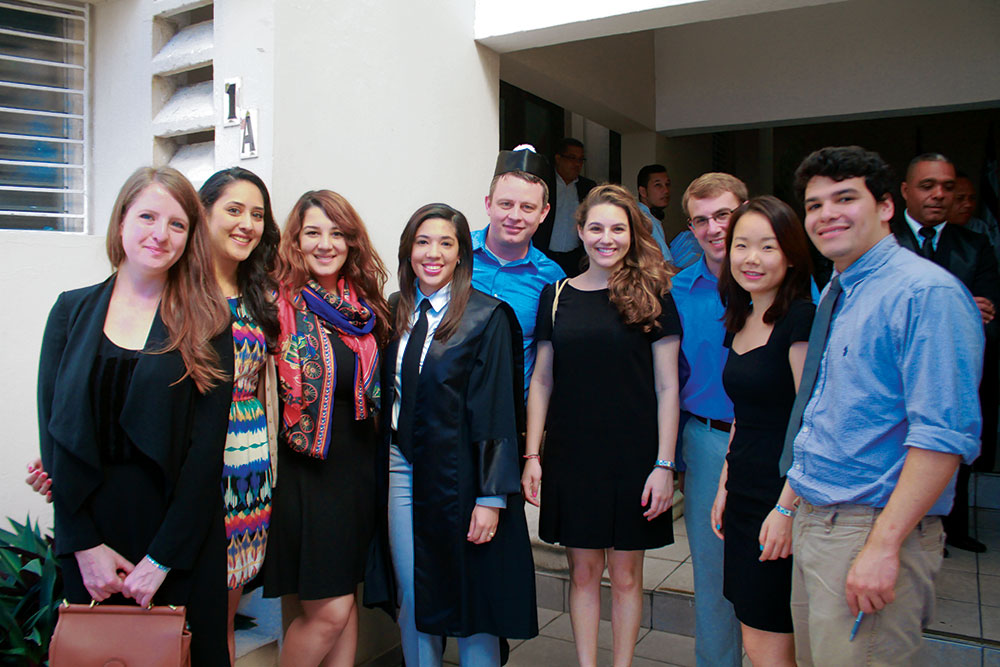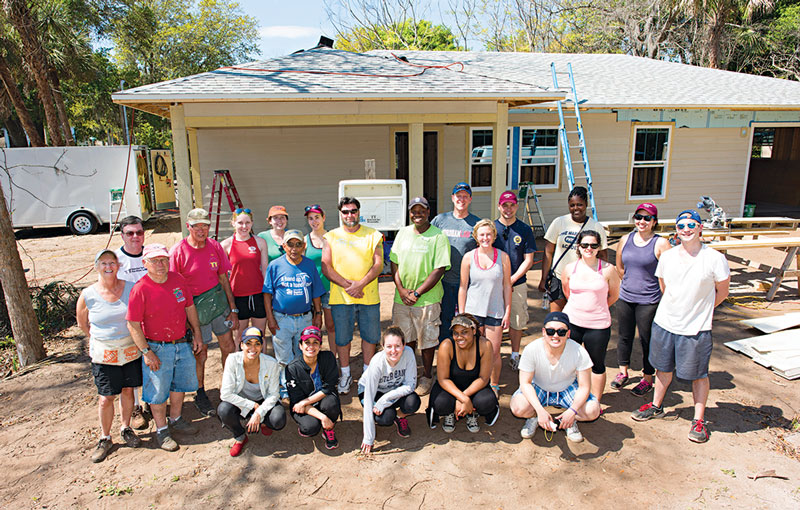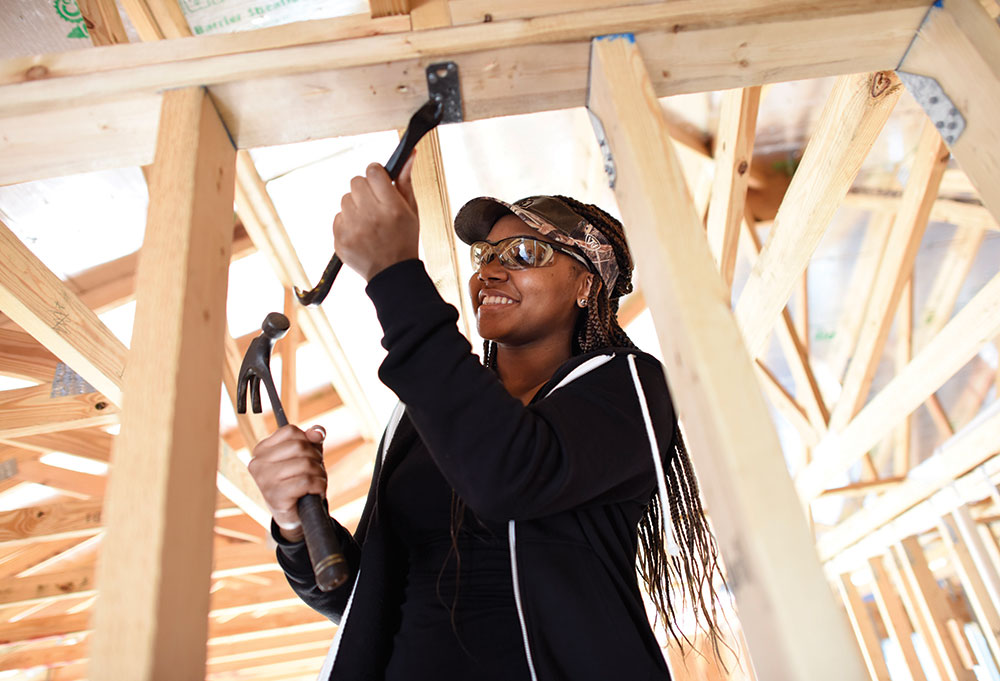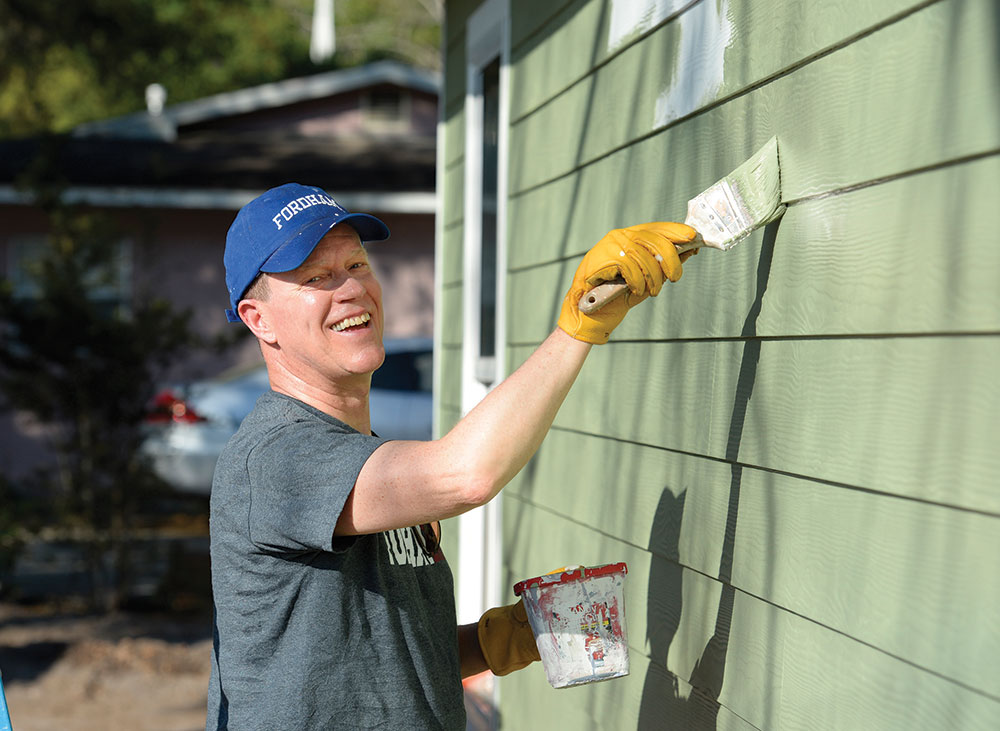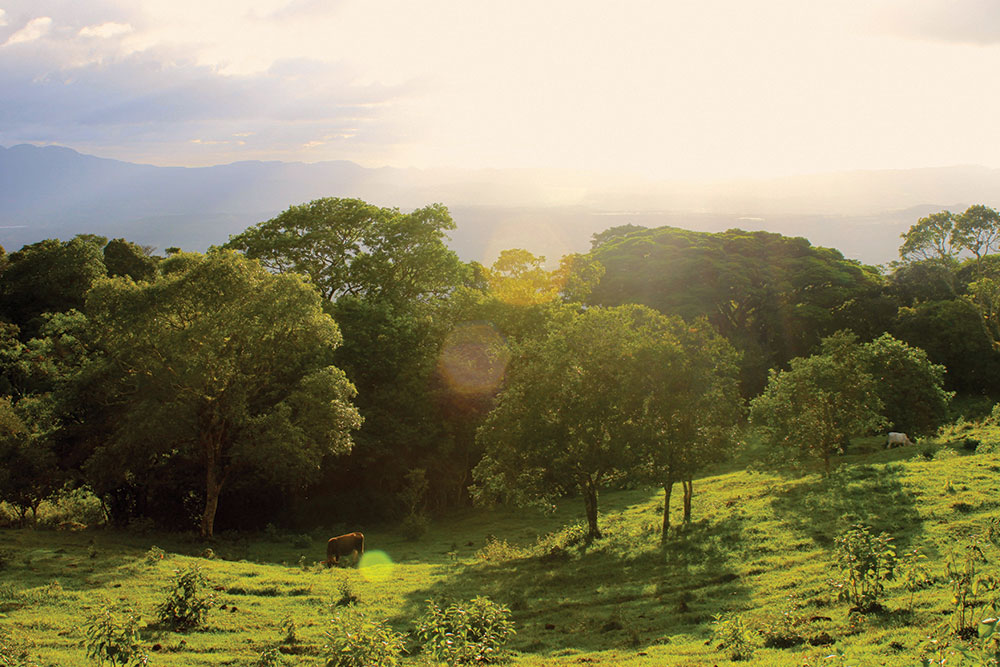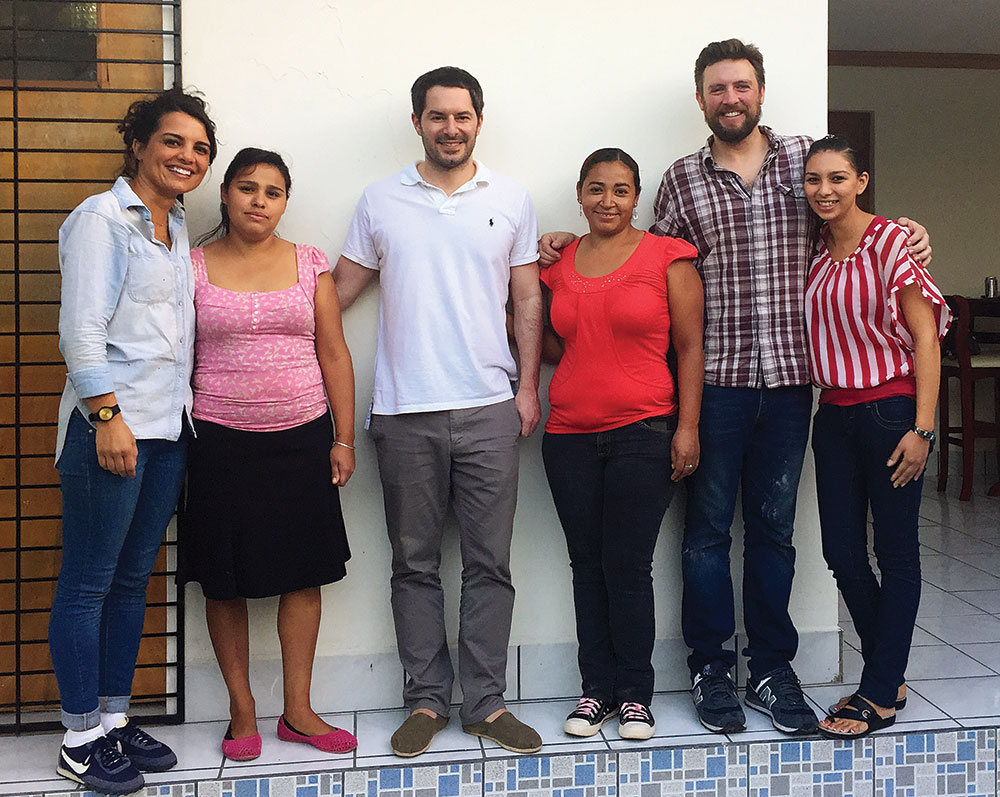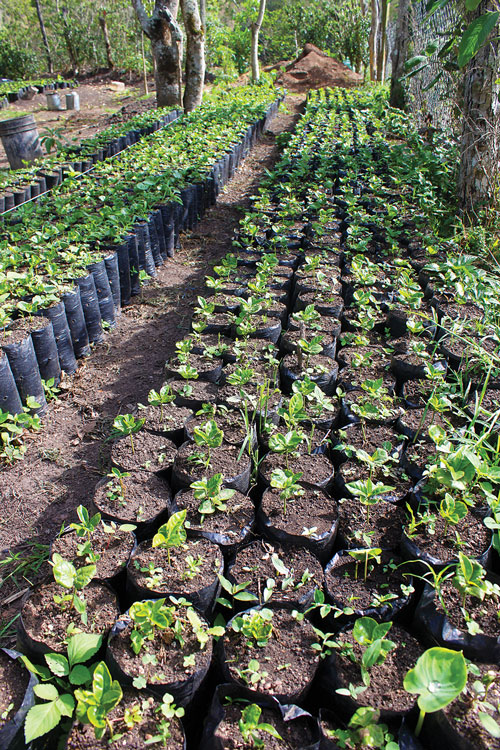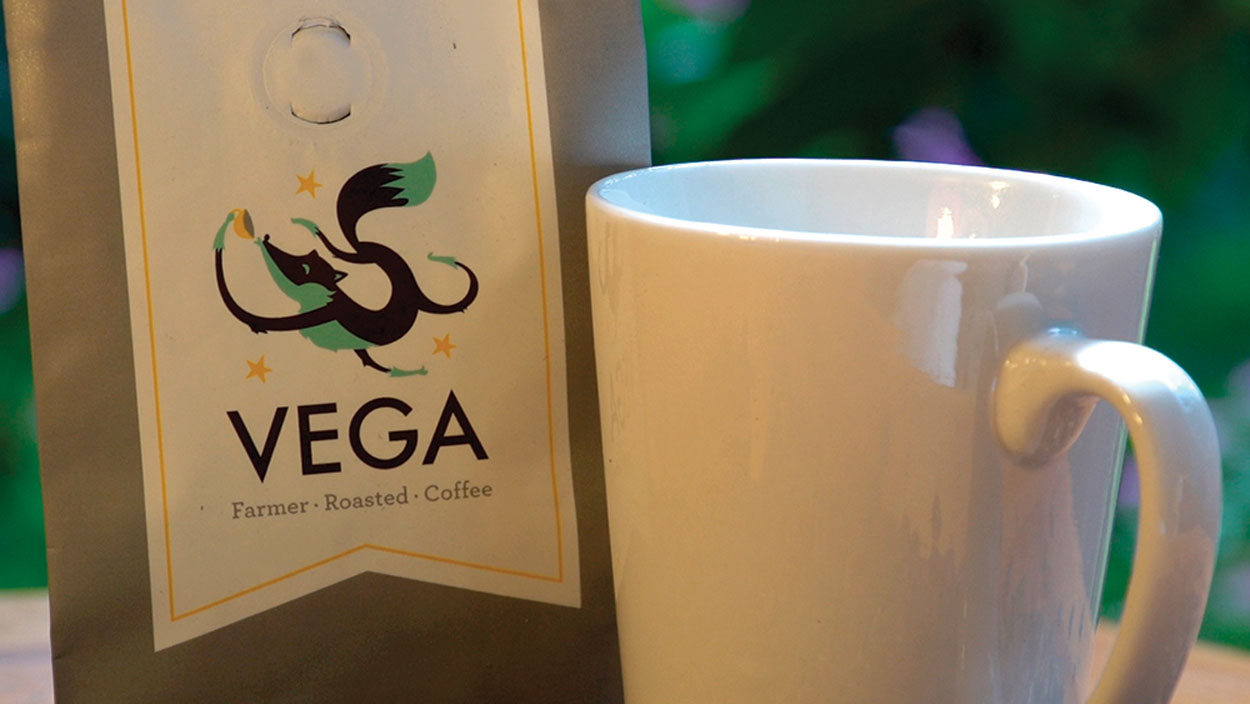Fordham Law’s alternative spring break trip offers students a service-oriented vacation from classes
Sleeping on a FEMA cot in a dank basement and rising at 5:00 a.m. to speak with exhausted construction workers probably aren’t activities that many law students would find desirable during an extended break from classes. However, that’s exactly what Anamaria Segura ’07 and 28 fellow law students did in January 2006 in New Orleans.
In late August 2005, Hurricane Katrina tore through the Crescent City, leaving at least 1,833 dead, an estimated $108 billion in damage, and over one million people displaced. Law students from Loyola, Tulane, and other affected schools were temporarily housed and instructed at peer law schools throughout the country. At Fordham Law, displaced students and their Fordham peers formed the Fordham chapter of the Student Hurricane Network and played a key role in the national mobilization of law students to the Gulf Coast, with the support of the Public Interest Resource Center and dedicated faculty. SHN posted flyers for a meeting to encourage any interested students to assist with relief efforts. Segura attended that meeting; five months later she was on a plane flying toward the disaster area to help in any way she could.
When she and fellow members of SHN arrived, New Orleans Legal Aid Services matched them to individuals who required legal assistance. The Fordham contingent interviewed undocumented day laborers who were helping rebuild the city. The laborers had been provided housing, but their work and living conditions were deplorable. The SHN group experienced firsthand how these undocumented workers lived and worked in inhumane conditions. After the group concluded their interviews, they produced a report that inspired the creation of a local workers’ center and that spurred the city to increase the number of pro bono legal resources related to basic labor rights.
The following year, SHN expanded its efforts to Biloxi, Mississippi, and a second group of 19 students returned to New Orleans in March, this time organized by Segura herself, who had recently been appointed an SHN officer. For their efforts, the group received in 2007 the President’s Pro Bono Service Award from the New York State Bar Association.
Students at Fordham Law have participated in alternative spring break trips for almost 30 years. In 1987, a student-led group coordinated with Habitat for Humanity to spend the week of spring break building affordable homes for low-income families in West Virginia. That group eventually grew into a formal Fordham Law chapter of HFH, which has organized an annual alternative spring break trip ever since.
“I think that working with Habitat makes many participants look at housing and community issues with a greater sense of awareness.” – Casey McGowan ’15
This year, the 28th annual HFH spring break trip went to New Smyrna Beach, Florida, just south of Daytona Beach. The Fordham chapter worked side by side with the families whose homes they helped build.
“Habitat is unique in that it is a PIRC group that is not targeted specifically at legal issues,” said Casey McGowan ’15, 2014–2015 president of the Fordham Law HFH chapter. “I think that working with Habitat makes many participants look at housing and community issues with a greater sense of awareness.”
While the Habitat group has focused their service efforts in the United States, other student groups travel beyond the country’s borders.
As a 1L and 2L, Alexandra Berke ’14 spent her spring break in Port-au-Prince, Haiti, where an earthquake had roiled the country in January 2010. Fordham’s SHN, rechristened the Disaster Relief Network, partnered with the Institute for Justice and Democracy in Haiti to offer legal aid to victims. Berke and seven other Fordham Law students administered surveys to and interviewed individuals and families who had been housed in tent camps following the disaster. According to Berke (now an Equal Justice Works Fellow in health law), the inhospitable conditions of the ersatz shantytowns were deeply unsettling. She and her law school classmates sought to capture the anguished voices of the displaced Haitians, whose woes were otherwise unheard and unaddressed by their government. The DRN group compiled their findings into a report and presented it to the IJDH, which used the information for press releases to draw attention to the plight of the disaster victims.
In March 2010, another Fordham Law student group, Universal Justice, sent students, including David Levy ’12, to Haitian communities in the Dominican Republic in order to help individuals obtain government documentation that would grant them access to land, education, and healthcare.
Historically, Haitians have migrated to the DR, Haiti’s western neighbor, to work on sugarcane plantations. When the plantations became untenable, Haitians remained in the DR, forming an undocumented immigrant population. Succeeding generations of these Haitian-Dominicans effectively compose a stateless class—individuals with no proper identification or legal rights as Dominican citizens. Fordham Law teamed with nongovernmental organization Sister Island Project to research the rights of Haitian-Dominicans, especially of children born in the DR. These children were often educated only until the fourth grade and had very limited access to healthcare.
Haitian-Dominicans living in bateyes (sugarcane towns) had few resources to improve their legal status. Levy (now an international human rights attorney with the United Nations) and his peers interviewed these families and compiled a report to present to Dominican politicians. The Fordham group also sought to establish microfinancing enterprises to assist small businesses within these bateyes: they spoke with locals, determined what marketable skills they had, and helped facilitate the investment of a small loan into their community. With this loan, the Fordham students assisted the community with establishing an agricultural co-op that is to this day distributing fresh produce throughout the batey.
Fordham Law’s alternative spring break trips are financed through budget requests to the School’s Student Bar Association. Rarely, though, does the SBA’s allocation cover the full cost of the project. Innovative student fundraising is often needed. In the ’80s, ’90s, and early ’00s, fundraising campaigns included bake sales, raffles, and dinners. Today, designated donations are made through the Law School’s Development Office. Hillary Exter, former Director of Student Organizations and Publicity at PIRC, once suggested to the student groups that they combine their fundraising campaigns; the result was the PIRC Ball. Money raised from the annual event is disbursed to the participating PIRC groups according to the efforts of their volunteers and need.
Human rights and dedicated service are the recurring themes of these trips, and these values forge lasting impressions on the professional and personal lives of the student participants.
Take, for example, Robert Terenzi, Jr., ’10 and Noushin Ketabi ’10. On their spring break in 2008, they fell in love with Central America, the idea of helping local coffee farmers, and each other. Terenzi and Ketabi traveled to Nicaragua on a trip organized by Universal Justice to assist coffee farmers in improving their systemic supply-chain problems. After graduating Fordham with joint degrees (a J.D. and an M.A. in international political economy and development) they married and moved to California to work, Terenzi at a law firm and Ketabi at the California Public Utilities Commission. In 2013, however, after obtaining their certification as coffee roasters, they quit their jobs, started a fundraising campaign on Kickstarter, and moved to Nicaragua.
There, they founded their own coffee company, Vega Coffee (www.vegacoffee.com), whose mission is to make local coffee farmers more independent from the major coffee brands. Now, instead of harvesting beans and selling them for around $1/pound, farmers working with Vega also roast and package their own coffee for purchase at around $4/pound. Terenzi and Ketabi also assist women’s cooperatives in Nicaragua. Last year, they donated hundreds of coffee plants to one co-op in the hopes that it will improve its productivity and sustainability for years to come.
While planning their initial Kickstarter campaign (which earned over twice their projected goal of $20,000), Terenzi and Ketabi needed to roast and package 50 pounds of coffee as gifts for supporters. One 50-pound batch of coffee increased the annual income of a small, coffeefarming family by 10–15%, which the family immediately reinvested into their farming community by starting an eco-tourism business.
Terenzi and Ketabi are grateful to PIRC for its continued support of the alternative spring break trips, programs that profoundly impact the lives of Fordham Law students. For some, like Segura and Levy, the trip is an integral part of the sum of experiences that help shape their distinct careers in public service. For others, such as Terenzi and Ketabi, the trip prompted a complete lifestyle change. For all, the alternative spring break trips signify a meaningful time spent away from the classroom working in the service of others.
Story by Ruth Adams, photographs by Todd Anderson (Florida), Carlos Rodriguez (Dominican Republic), and Vega Coffee (Nicaragua)


